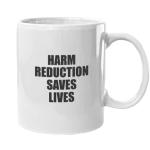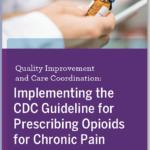At last month's White House ceremony, President Trump signed an executive order requiring the Drug Enforcement Administration to reschedule cannabis from a Schedule I controlled substance to a Schedule III controlled substance.
Drug War
The Washington Post reports that President Trump plans to issue an executive order that would have the Dru
In a Cato Institute policy analysis, Sofia Hamilton and I highlighted that people with opioid use disorder (OUD) in Australia, Canada, and the UK
Earlier this month, in a Wall Street Journal
On May 14, the Centers for Disease Control and Prevention reported that overdose deaths dropped in 2024 to their p
Join Cameron English and Dr. Chuck Dinerstein on Episode 75 of the Science Dispatch podcast as they discuss the latest development in illicit drug use:
Join host Cameron English, Dr. Josh Bloom and Dr. Barbara Billauer as they break down these stories on Episode 56 of the Science Dispatch podcast:
Late on the afternoon of December 23, the U.S.
I have written for years that the Food and Drug Administration should make the opioid overdose antidote naloxone over‐the‐counter.
Responding to medical experts, including the American Medical Association, who have been complaining for ye













